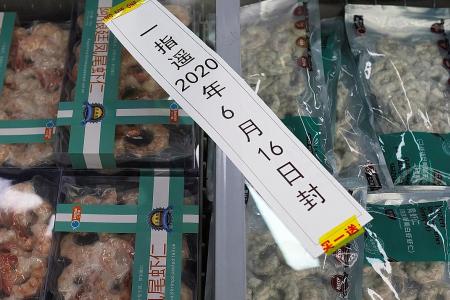Two Chinese cities find coronavirus in imported frozen food, packaging
BEIJING/SHANGHAI: Two cities in China have found traces of the coronavirus in imported frozen food and on food packaging, the local authorities said yesterday.
A sample taken from the surface of frozen chicken wings imported into the southern city of Shenzhen from Brazil, as well as samples of outer packaging of frozen Ecuadorian shrimp sold in the north-western Xi'an city, have tested positive for the virus, the local authorities said yesterday.
FROZEN SHRIMP
The discoveries came a day after traces of the coronavirus that causes Covid-19 were found on the packaging of frozen shrimp from Ecuador in a city in eastern Anhui province. China has been stepping up screenings at ports amid the concerns over food imports.
Shenzhen's health authorities traced and tested everyone who might have come into contact with potentially contaminated food products, and all the results were negative, the city's notice said.
"It is hard to say at which stage the frozen chicken got infected," said a China-based official at a Brazilian meat exporter.
The Shenzhen Epidemic Prevention and Control Headquarters said the public needed to take precautions to reduce infection risks from imported meat and seafood.
The Health Commission of Shaanxi province, where Xi'an city is located, said the authorities are testing people and the surrounding environment connected to the contaminated shrimp products sold in a local market.
There is currently no evidence that people can catch Covid-19 from food or the packaging, according to the World Health Organisation, a view backed by the US Centres for Disease Control and Prevention and other government agencies.
Coronaviruses cannot multiply in food - they need a live animal or human host to multiply and survive.
Since the new coronavirus cannot replicate on the surface of food or packaging, it can only become gradually weaker outside a living cell, said virology professor Jin Dong Yan at the University of Hong Kong.
He did not rule out that a person could spread droplets containing the virus on the surface of food, or a package, and someone else could then contract the virus by touching the surface and then their mouth or nose.
But such a case would be rare, he said. - REUTERS
Get The New Paper on your phone with the free TNP app. Download from the Apple App Store or Google Play Store now


